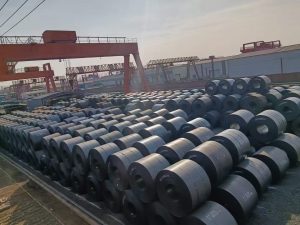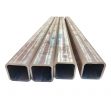phasing-out of excess production capacity
Benefits of Phasing Out Excess Capacity:
Enhanced Efficiency: By phasing out excess capacity, companies can streamline their operations and align production levels of welded steel pipe with actual demand. This optimization allows for better resource utilization, reduced wastage, improved productivity, and enhanced overall efficiency.
Cost Reduction: Operating excess capacity incurs unnecessary costs, such as maintenance, energy consumption, and labor expenses. By eliminating surplus production capabilities, companies can reduce these overhead costs, improve profit margins, and bolster financial stability.
Market Adaptability: Phasing out excess capacity enables companies to adapt quickly to market fluctuations and changing customer demands. With a leaner production process, businesses can respond more effectively to dynamic market conditions, ensuring timely delivery, and maintaining customer satisfaction.
Sustainability and Environmental Responsibility: Reducing excess production capacity aligns with sustainability goals by minimizing resource consumption and waste generation. By optimizing production levels, steel pipe manufacturers can contribute to environmental conservation and reduce their carbon footprint.

Market Analysis and Demand Forecasting: Conduct a comprehensive analysis of market trends, customer preferences, and demand patterns. Accurate demand forecasting helps align production capacity with market needs, avoiding overcapacity situations.
Product Diversification and Innovation: Explore new product lines or innovative offerings to utilize excess capacity effectively. By diversifying product portfolios, companies can tap into new market segments and maximize existing production capabilities.
Strategic Partnerships and Collaborations: Form strategic alliances with other companies to share production capacity and resources. Collaborative ventures can help distribute excess capacity of round steel tube for sale among partners, reducing individual overcapacity risks and enhancing operational efficiency.
Operational Streamlining: Implement lean manufacturing principles to optimize production processes and eliminate inefficiencies. Identify and eliminate bottlenecks, improve workflow, and reduce downtime to enhance productivity and utilize capacity more effectively.
Market Development and Expansion: Identify new markets and geographical regions to expand the customer base and tap into untapped demand. Targeting new markets allows for the absorption of excess capacity and opens up opportunities for growth.
Repurposing and Upgrading: Explore options for repurposing excess capacity for other products like rectangular hollow section or markets. Upgrading existing production facilities with advanced technologies can help enhance efficiency and align capacity with evolving market demands.
Phasing out excess production capacity is crucial for industries aiming to achieve efficiency, sustainability, and long-term growth. By understanding the implications of excess capacity, businesses can adopt proactive strategies to optimize production levels, reduce costs, improve market adaptability, and contribute to environmental sustainability. Embracing these measures will enable companies to thrive in a dynamic and competitive business landscape while ensuring resource efficiency and operational excellence.
Tel: +86 18202256900 Email: steel@tjdpbd.com









